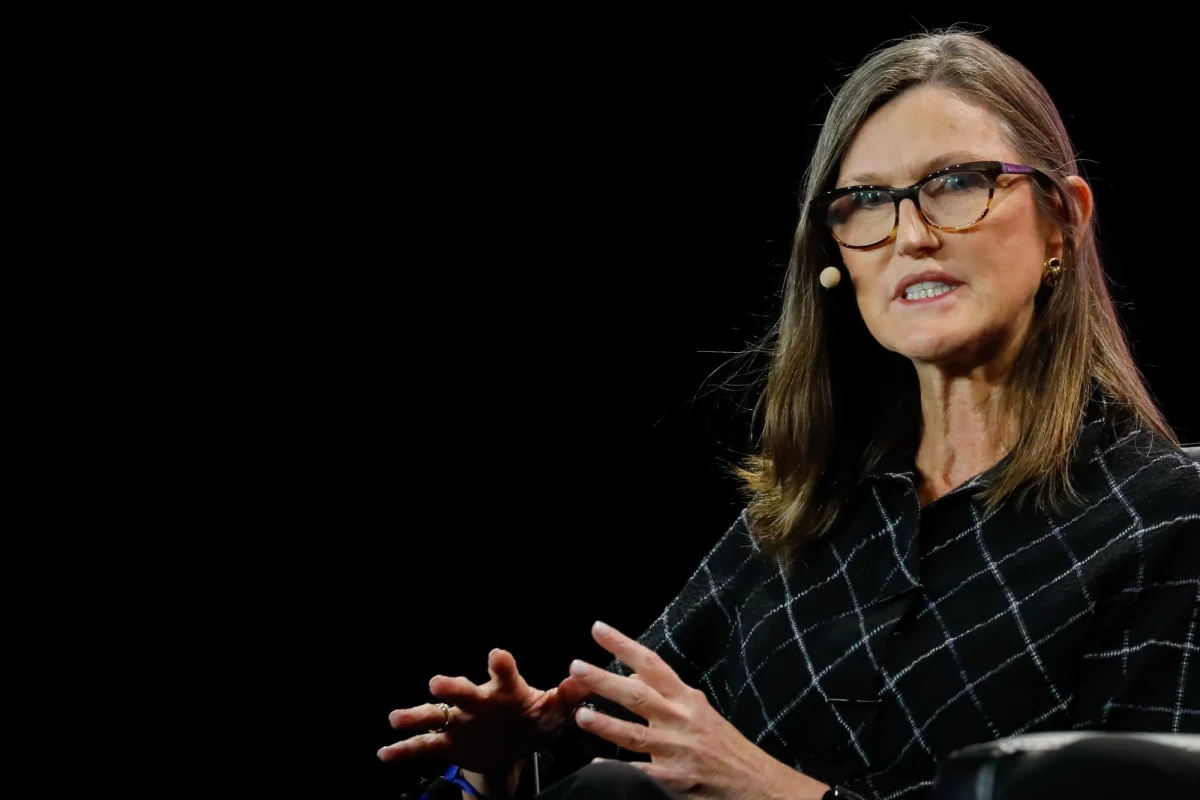Cathie Wood Sees Unexpected Upside in Tariff Tensions
20.05.2025 18:00 1 min. read Alexander Stefanov
As markets react nervously to renewed trade measures under President Trump, ARK Invest founder Cathie Wood is taking a contrarian stance: she believes the current disruption could ultimately unlock more open markets and long-term growth.
Speaking in a recent interview, Wood argued that tariffs might be used as leverage to eliminate outdated trade barriers rather than to build new ones.
The recent reduction in auto tariffs under the U.S.–UK trade deal, she said, could signal a broader shift toward reciprocal agreements — and if replicated, would effectively act as a tax cut for U.S. industries.
Wood highlighted areas like tech and healthcare as key beneficiaries. In her view, lifting trade restrictions could fast-track the adoption of AI, robotics, and biotech across borders. She noted that AI, in particular, is revolutionizing drug development in ways investors haven’t yet fully priced in.
When questioned about fiscal concerns, she remained bullish, suggesting that technological breakthroughs could fuel enough economic expansion to ease deficit pressures.
While the market fixates on short-term risks, Wood’s message is clear: disruption may be uncomfortable, but it could be laying the groundwork for a more competitive and innovation-driven economy.
-
1
U.S. PCE Inflation Rises for First Time Since February, Fed Rate Cut Likely Delayed
27.06.2025 18:00 1 min. read -
2
Key U.S. Economic Events to Watch Next Week
06.07.2025 19:00 2 min. read -
3
Gold Beats U.S. Stock Market Over 25 Years, Even With Dividends Included
13.07.2025 15:00 1 min. read -
4
U.S. Announces Sweeping New Tariffs on 30+ Countries
12.07.2025 16:30 2 min. read -
5
US Inflation Heats Up in June, Fueling Uncertainty Around Fed Cuts
15.07.2025 16:15 2 min. read
US Inflation Heats Up in June, Fueling Uncertainty Around Fed Cuts
U.S. inflation accelerated in June, dealing a potential setback to expectations of imminent Federal Reserve rate cuts.
Gold Beats U.S. Stock Market Over 25 Years, Even With Dividends Included
In a surprising long-term performance shift, gold has officially outpaced the U.S. stock market over the past 25 years—dividends included.
U.S. Announces Sweeping New Tariffs on 30+ Countries
The United States has rolled out a broad set of new import tariffs this week, targeting over 30 countries and economic blocs in a sharp escalation of its trade protection measures, according to list from WatcherGuru.
Key U.S. Economic Events to Watch Next Week
After a week of record-setting gains in U.S. markets, investors are shifting focus to a quieter yet crucial stretch of macroeconomic developments.
-
1
U.S. PCE Inflation Rises for First Time Since February, Fed Rate Cut Likely Delayed
27.06.2025 18:00 1 min. read -
2
Key U.S. Economic Events to Watch Next Week
06.07.2025 19:00 2 min. read -
3
Gold Beats U.S. Stock Market Over 25 Years, Even With Dividends Included
13.07.2025 15:00 1 min. read -
4
U.S. Announces Sweeping New Tariffs on 30+ Countries
12.07.2025 16:30 2 min. read -
5
US Inflation Heats Up in June, Fueling Uncertainty Around Fed Cuts
15.07.2025 16:15 2 min. read


